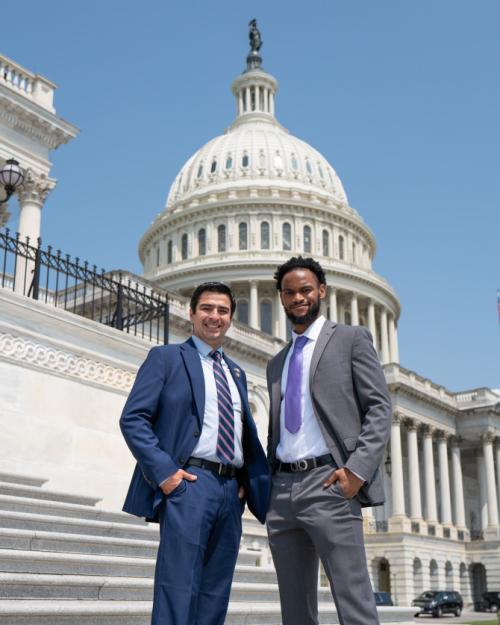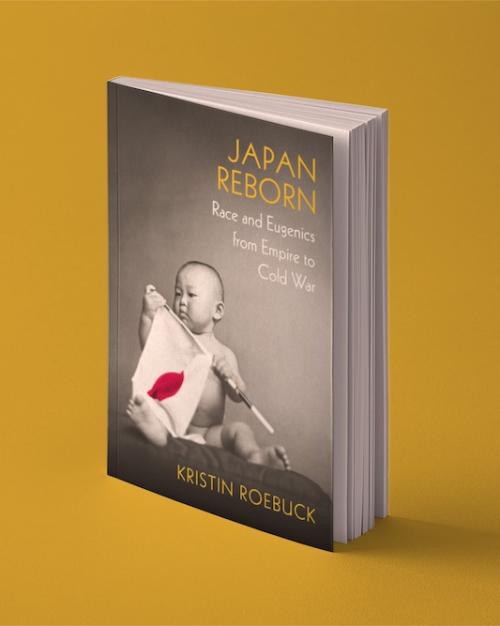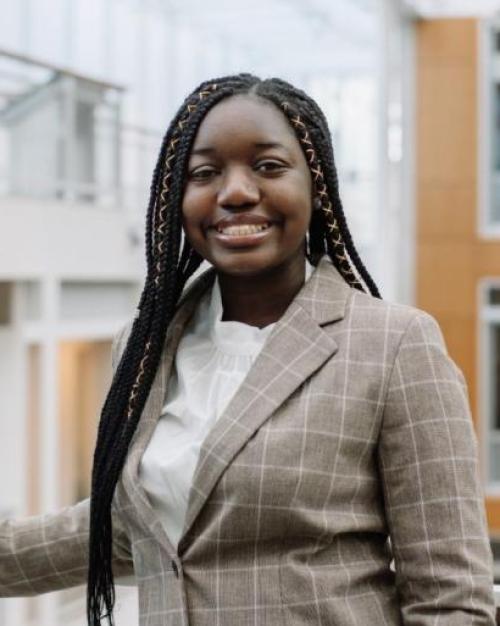Twenty-six student companies received awards from Entrepreneurship at Cornell that will allow them to work on their businesses this summer. With businesses ranging from drinking water treatment to alternative medicine to kitchen robots, the students come from nearly every college or school within Cornell, including several of Cornell’s graduate programs.
The Marla and Barry Beck Entrepreneurship Fellows and Human Spirit Entrepreneurship Fellows programs both provide students with summer funding up to $5,000, which can be used to support the startup by paying for compensation, prototypes, web development or other expenses.
Aisha Conte’23, who is studying sociology in the College of Arts & Sciences, is creating an app, Auset’s Cabinet, that provides information on holistic and natural remedies for various illnesses.
“My idea is inspired by my grandma’s tinctures, which have healed some of my sicknesses, and by judging the state of the American health care system, this app may help those who may not have access to modern health care,” said Conte, a member of Black Entrepreneurs in Training, Women Entrepreneurs at Cornell, and Wanawake Wa Wari Co-op. “Currently I am in the beginning stages, doing research and customer discovery.”
Michelle Greenfield, a doctoral student in the College of Veterinary Medicine, has developed a company, Equilibrate, focused on high-capacity sensors that transmit data on horse weight so that horse owners can better manage a horse’s husbandry and medical care. The sensors send Bluetooth data to a smart phone app, where owners can routinely monitor trends.
“The current industry standard to approximate the weight of horses is to use girth tapes,” Greenfield said. “Equilibrate puts the power directly in the hands of those working with the horses the most, making a user-friendly solution that provides more accurate measurements.”
Marcin Sawczuk, a doctoral student in the College of Engineering, will be working on First Water Technology, a company that uses an enhanced water treatment technology that provides greater throughputs, while decreasing the volume of produced waste and limiting maintenance requirements.
The summer funding will allow him to hire someone to set up the company, researching business liability insurance and setting up logistics for quick and effective deployment of a Small Business Innovation Research (SBIR) grant he hopes to receive.
“The best thing about our technology is its robustness, simplicity and low maintenance,” Sawczuk said. “We’ve been interviewing professionals from the water sector, and they say it’s super hard to find workers, so the less labor intensive the job is, the better.”
Sawczuk is a member of this year’s eLab business accelerator cohort, so he’s already receiving lots of mentoring to move his company forward.
Sean Cai ’25, a student in the Charles H. Dyson School of Applied Economics and Management, has a business that will offer customized college tours for high school students and their parents.
AnyTour, an online video college tour platform, operates on a peer-to-peer model, where college students offer 360-degree pre-recorded tours of campus that can be customized for a small audience, while the student also offers insights into their college’s programs.
“Even before COVID, in-person college tours were pretty impersonal. They were often led by students who weren’t in your major so they couldn’t speak about the classes or professors you might have,” Cai said. “And after COVID, all of the college tours went online, but none of the universities were well-equipped to give comprehensive virtual tours.”
MiFood Tech, founded by Mi Yan, a master’s student in the Department of Natural Resources and the Environment, is developing prototypes for a robotic automotive cooking wok and food chopper. The company has been talking with chefs and restaurant owners to find out what jobs would be best to automate. Labor shortage is also a problem in the restaurant industry, so this automation could help solve part of that.
Yan said they will use their summer funding to purchase components for the prototypes and also start filing for NSF approval. They are applying to be a part of Rev: Ithaca Startup Works’ summer hardware accelerator.
“Our technology won’t take the place of all of the labor,” said Yingtong Li ’23, a Hotel School student and another member of the team. “It’s a combination of people and machines that will create better value.”
For more information about the awards or application information, visit the Entrepreneurship at Cornell website.
Read the story in the Cornell Chronicle.




